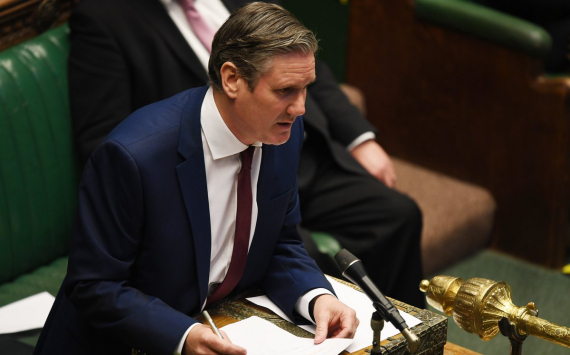
Sir Keir Starmer has told Sky News he would back "wealth taxes" to fund social care reform - but refused to reveal if he had his own plan.
The Labour leader told Sky's political editor, Beth Rigby, a "range of options" needs to be looked at after criticising the government for voting to increase National Insurance to boost social care funding.
He has been lambasted from all sides for failing to provide his own plan for reforming social care, including by former Labour health secretary Andy Burnham.
Pushed to confirm how he would fund an increase in social care funding, Sir Keir told Sky News: "I wouldn't look to working people.
"I would say those with the broader shoulders should pay - that means those that earn their money in ways other than work should pay their own share.
"People who earn their money from properties, dividends, stocks, shares - they should be looked at.
"We need to look at a range of options - that includes the way people earn their money.
"We should look at all of that. Those with broader shoulders should pay their fair share."
On whether that would be a tax on the wealthy, he said: "Yes, all of those options are a wealth tax, in the broadest sense of the word, and we should look at it."
He added it was not fair a landlord with several properties will not have to pay the National Insurance hike but their tenants will.
Labour voted on Wednesday evening against Boris Johnson's plans to increase National Insurance by 1.25 percentage points to raise extra funding for the NHS, and eventually social care.
But Sir Keir has refused to provide an alternative proposal, prompting criticism from within his own ranks as well as the Conservatives.
Mr Burnham, who is now mayor of Greater Manchester, earlier told Sky News Sir Keir must come up with a plan for social care by the Labour conference at the end of September.
Sir Keir, who will be attending his first in-person conference as leader, said: "I can't wait to be amongst thousands of Labour members and supporters and having my first chance as Labour leader, to actually address them and tell them what the future looks like and how we're going to build it together."
However, he refused to provide any solid details of a proposal for social care reform, only saying his approach would be "preventative".
"I would introduce a preventative principle to intervene earlier, with acts of supports before people need care," he said.
"I will introduce an at home first approach by putting support for them and those who care for them, and a package for those working in the social care sector so they're properly valued and paid."
Ahead of Wednesday's vote, the Institute for Fiscal Studies (IFS) warned the money raised by the National Insurance increase risked being permanently swallowed up by the NHS with "little if any" left over for social care.
Under the government's plans the NHS will get the majority of the £36bn raised in the first three years, with £5.4bn for social care in England.










